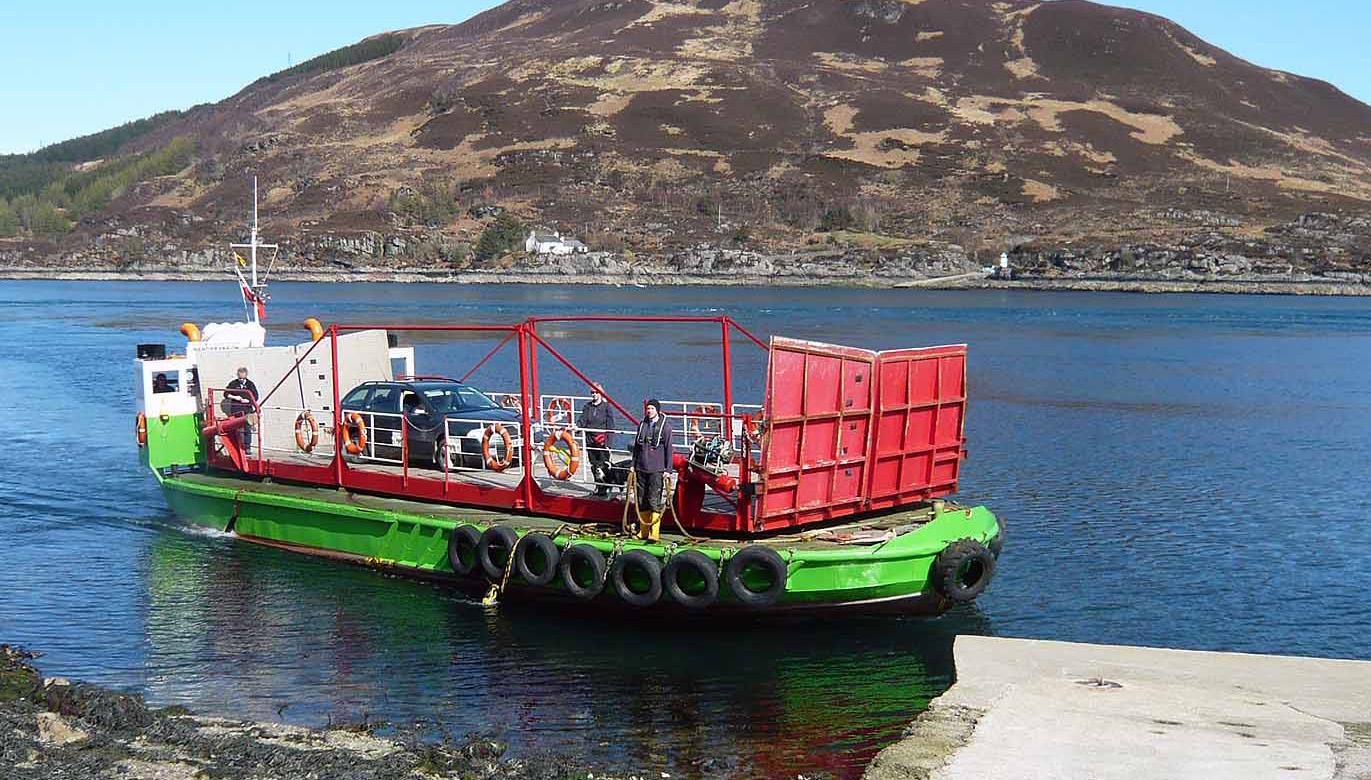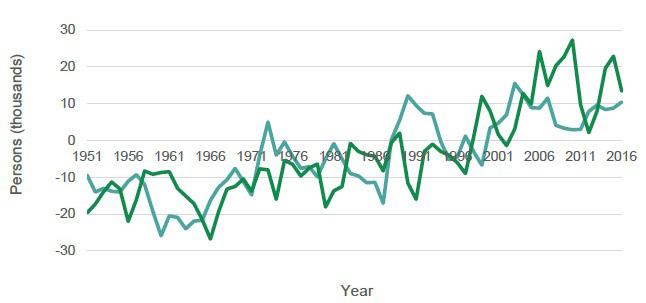
A World of Talent: Building an immigration system that works for small businesses
Scottish Analysis
Expert
a) An academic perspective: Dr Eve Hepburn, Director PolicyScribe
b) A legal perspective: Darren Stevenson, Partner, McGill & Co


Expert
a) An academic perspective: Dr Eve Hepburn, Director PolicyScribe
b) A legal perspective: Darren Stevenson, Partner, McGill & Co
Since the UK’s vote to leave the EU, the top Brexit issues raised by small businesses across Scotland have centred on people. With the end of the transition period in December 2020 looming, small firms have a critical interest in the development of the new post-EU UK immigration system. This is particularly acute in Scotland for the following reasons:
1. In business terms, they are more reliant on EU workers than their counterparts elsewhere in the UK. According to new FSB research, 40% of small firms in Scotland employ EEA workers, compared to 26% across the UK as a whole. Indeed, Scotland is second only to London in terms of reliance on EEA workers.
2. In economic terms, Scotland is more dependent on sectors which employ larger numbers of EU staff – for instance, 45% of smaller businesses in the tourism and hospitality sector have at least one EU worker1
3. In geographic terms, Scotland is a country dominated by its remote and rural areas, with 98% of its landmass found in remoter parts2. Although only 17% of the population live in rural Scotland, 78% of private sector employment is provided by SMEs in these areas3 – and these businesses can be heavily reliant upon mobile labour from the EU.
4. In demographic terms, Scotland’s historic struggle with a declining population is likely to return because the country is projected to be solely reliant on inward migration for future population growth. An independent expert group on migration and population, set up by the Scottish Government, predicts that reduced migration from the EU will lead to the working-age population reducing by up to 5%4
5. And, in immigration terms, only 5% of small businesses have used the UK’s points-based immigration system. Thus, were the new system to rely heavily on an expanded version of the current Tier 2 visa route, this could prove prohibitively expensive and administratively burdensome.
1 www.fsb.org.uk/resources-page/a-skilful-exit---what-small-firms-want-from-brexit-pdf
2 www.gov.scot/publications/rural-scotland-key-facts-2018/pages/2
3 www2.gov.scot/Topics/Statistics/Browse/Business/Corporate
4 www.gov.scot/publications/uk-immigration-policy-leaving-eu-impacts-scotlands-economy-population-society
In this report, the Federation of Small Businesses (FSB) sheds light on the relationship between EU labour and small businesses in Scotland. It builds on extensive new UK-wide research which recommends that, for example, the UK Government lower the proposed minimum general salary threshold of £30,000 for medium skilled jobs, implements a points-based system that works for all of the UK and provides a two year, cross sectoral, temporary route visa that is open to EEA workers.
In summary, it finds that small businesses in Scotland continue to rely upon EU workers for critical labour and skills, despite the uncertainty caused by the Brexit process. Yet it seems likely that few would be able to continue to operate in the same way in the UK’s proposed new, immigration system.
The end of an open labour market between the UK and EU means that employers who currently rely on non-UK labour will, for the first time, have to interact with an immigration system to recruit EU workers. This is a notoriously complex and costly system, governed by Home Office rules which currently run to over 1,000 pages. With many smaller employers lacking access to in-house HR support, it is reasonable to assume that few will be able to pay the current visa fee for the Tier 2 (General) visa.
One in five will close their business or radically change their business model if it’s difficult to recruit EU workers
Lastly, and despite the welcome announcement from the Migration Advisory Committee (MAC) to lower the tier 2 salary threshold to £25,600, a significant proportion of small firms will still be excluded from accessing overseas workers via this route. This is especially problematic for Scotland because a higher proportion of businesses are reliant on lower-skilled EU staff in labour intensive industries such as food and drink, tourism and healthcare.
Implementing a fair, flexible and easy-to-use immigration system is vital for many of Scotland’s 350,140 small businesses. The challenge now for the UK Government is to build an employerresponsive immigration system in ten months’ time – a formidable task that can only be achieved working in partnership with the small business community.

FSB Scotland believes that a future immigration system can be designed to respond to the migration and skills needs of smaller businesses in Scotland without creating additional complications or barriers for employers.
Echoing the key messages in our UK report about delivering a system that works for smaller businesses, we propose a number of additional recommendations to address Scotland’s unique challenges.
These proposals focus on how the UK and Scottish Governments could work together to develop a tailored approach to migration in Scotland, including:
1. Piloting a separate visa for remote parts of Scotland alongside other parts of the UK, as recommended by the Migration Advisory Committee5, to help address distinct economy, geographic and demographic challenges.
2. Allocate additional points for job seekers interested in working in Scotland, a common feature of points-based systems in countries such as Canada and Australia.
3. Create an additional route for migration in Scotland using the Scottish income tax code – a scheme which would be designed and operated by the Home Office.
4. Reform the Innovator visa, a scheme to attract entrepreneurs to the UK, by lowering the investment funds required to start a business in Scotland.

Dr Eve Hepburn FRSA founded PolicyScribe6 in 2017 after spending fifteen years in academia.
Eve is Academic Fellow at the Scottish Parliament, an Honorary Fellow at the University of Edinburgh’s Europa Institute and has advised the UK Parliament and the Canadian Government on immigration issues.
“The UK Government is planning to radically reform the post-Brexit immigration system, which will have significant implications for Scottish businesses. First, there will be a major reform to the UK’s points-based immigration system. This will involve ending EU free movement and requiring EEA nationals to apply for visas through the UK’s immigration rules, and prioritising high-skilled, highsalary migration through the development of a mixed points-based allocation system.
“The UK Government’s Migration Advisory Committee (MAC) has recommended that skilled workers should earn at least £25,600 per annum to qualify for a long-term work visa (which is a reduction of £4,400 for non-EEA nationals and an increase of £25,600 for EEA nationals), with lower rates for people under the age of 26, nurses, and certain public sector workers. In addition, people earning less than the minimum salary threshold may also be able to make up points elsewhere, for instance by having an outstanding educational record.
“Second, the UK Government will introduce a second phase focussed on the introduction of shortterm temporary visas for ‘lower skilled’ workers (i.e. those earning less than £26,500 per annum) in sectors facing shortages, which are yet to be determined.
What will this mean for Scottish businesses?
“First, they will no longer benefit from EU free movement, which has enabled businesses –especially SMEs – to employ EEA nationals without needing to go through the UK points-based system. The immigration reforms mean that, if Scottish businesses wish to recruit any overseas (including EEA) nationals, they will need to build their capacity to ensure they have a visa sponsorship license to hire migrants, and to comply with immigration costs and regulations on sponsoring and monitoring employees on a visa.
“Second, ending EU free movement will likely lead to a reduction in net migration to Scotland. This may make it harder to fill skills and labour shortages, especially in sectors where the average salary is less than £25,600 per annum and sectors that have been most reliant on EU workers (i.e. hospitality and retail, manufacturing, transport, construction).
“Third, for employers hiring overseas nationals on the proposed temporary low-skilled work route, given that there is no route to settlement for this visa, it makes worker retention impossible and the workforce more transient. So while the reforms will make it easier for employers to hire non-EEA overseas nationals (for instance by lowering the salary threshold), it will become far more difficult to hire EEA nationals in the future, upon which many sectors of the Scottish economy have depended.”


Darren Stevenson is a Partner at McGill & Co7 – a Scottish law firm specialising in UK immigration, nationality and refugee law.
Prior to joining the firm in 2008, Darren spent six years working at the Home Office. Darren has extensive experience in all areas of UK immigration law with particular expertise in navigating difficult and technically complex areas, including the Points Based System, EC law and British nationality law.
“The UK’s departure from the EU will bring about the most fundamental shift in UK immigration law since the 1970s. The ending of free movement for EU citizens also brings about the end of a liberal, light touch and largely declaratory system that governed their rights to enter, work and reside in the UK.
“In practical terms what will this mean? It is imperative that employers ensure that any existing EU employees have applied for either “settled status” or “pre-settled” status. This is the UK government’s scheme to bridge the gap between the end of free movement and enforcement of the UK’s domestic immigration laws in respect of all non-UK nationals.
7 www.mcgillandco.co.uk
“Once this transition period ends, which is expected to be by 2021, employers seeking to engage migrant workers from inside and outside of the EU will need to understand the UK’s immigration system.
“With an estimated 95% of SMEs never having engaged with the “Points Based System”, most will have been blissfully unaware of the complexity of the system that exists to engage non-EU nationals, and which will now serve, after a transitional period, to also regulate the position of newly hired EU nationals.
“Significant changes to this immigration system are expected, however it is likely to continue to rely on the core concept of sponsorship by a UK employer. An employer seeking to engage a non-UK worker in a skilled occupation will need a sponsor licence, via an application to the Home Office, accompanied by a fee (currently £536 for a small company).
“Further, if a licence is granted, the employer gains the ability to issue a “certificate of sponsorship” to a migrant worker. In many cases this will involve payment of an “Immigration Skills Charge” of £364 per year of sponsorship. The worker can then use this certificate to seek a visa, with additional procedure and costs of perhaps £2,000.
“This may only be the start of their immigration journey, and often two more visa applications, and attendant cost, are required before the worker gains “indefinite leave to remain.” The grant of a sponsor licence also imposes ongoing compliance duties and the ability to issue a certificate of sponsorship is subject to complex restrictions.
“For lower-skilled occupations the sponsorship route will not be available. It now appears that a proposed ‘low-skilled’ visa is no longer being contemplated by Government, which will leave some employers facing significant labour changes as free movement ends.
The ending of free movement also complicates the ongoing duty to ensure that a worker has ‘right to work’; protecting the employer from heavy penalties.”
“SMEs now looking to the future with some trepidation may take some comfort from Government statements on the matter, with assurances that the new system will be “as straightforward and light touch as possible, and low cost to employers”. It remains to be seen if the complexity and cost of the current system can be reduced, and even with the most optimistic outlook, SMEs face a radically different system for EU workers than has previously been the case.”

Over the course of its history, and in contrast to the rest of the UK, Scotland has grappled with population decline8
Graph 1: Net migration to Scotland (International and rUK), 1951-20169

International
It is an issue which has shaped the economy, society and culture to such an extent that Scotland is one of only four European countries that experienced population decline in the latter part of the 20th century.
However, this trend changed in the 2000s with high levels of population growth – fuelled, in particular, by people migrating to Scotland from Eastern Europe. Indeed, graph 2 illustrates the reliance the country has on people migrating to the country for population growth, in contrast to the UK as a whole.
8 www.gov.scot/publications/uk-immigration-policy-leaving-eu-impacts-scotlands-economy-population-society/pages/1
9 Ibid.
10 www.gov.scot/publications/plan-scottish-visa

11 www.nrscotland.gov.uk/files/statistics/nrs-visual/rgar-2018/rgar-2018-infographic-booklet.pdf

Of the 219,000 EU citizens who have settled in Scotland, an estimated 141,000 are currently in work across a diverse range of sectors and geographies. Many EU workers find employment in key sectors such as tourism (21,000), food and drink (11,000) and the creative industries (9,00)12
The near one million jobs created and sustained by small businesses is a well-established phenomenon in Scotland and the rest of the UK13. This is particularly the case in rural communities. In Orkney, for instance, smaller businesses provide 72% of all private sector jobs and in the Scottish Borders that figure is 57%14
What is arguably less well-known, however, is the high number of jobs they provide for EU citizens – despite the uncertainty caused by the protracted EU withdrawal process. This report finds that 40% of small firms in Scotland employ an EEA worker, compared to the UK average of 26%. Notably, Scotland is second only to London in terms of reliance on EEA workers.
Looking in greater depth at the skill levels of EU staff in small businesses, as defined by the UK’s immigration system, reveals that they operate across a variety of occupations (table 1). This includes: carers, joiners and childcare workers (low-skilled); hotel and retail managers and graphic designers (medium skilled); and accountants, engineers and teachers (higher-skilled).
Table 1: Which skill level do the majority of your EU staff fall into?15
Whilst many FSB members do not consider themselves to be operating lower-skilled businesses, such as Tanja Lister featured below, the fact remains that the UK Government’s immigration system will define their operations in such a way.
12 www2.gov.scot/Topics/Statistics/Browse/Labour-Market/Publications-Topical/NonUKNatJD18
13 www.gov.scot/publications/regional-employment-patterns-scotland-statistics-annual-population-survey-2018
14 www.gov.scot/publications/regional-employment-patterns-scotland-statistics-annual-population-survey-2018
15 This table is taken from FSB survey work undertaken for this report and includes only Scottish data.
As a result, and in light of the greater reliance small firms in Scotland have on lower-skilled EU workers (table 1), it will be critically important for the immigration system to provide cost-effective and sustained access to overseas staff at this level. Indeed, 44,000 non-UK nationals work in these types of occupations16
Tanja and her business partner have run the highly-acclaimed, award-winning 11-bedroom Kylesku Hotel in remote North-West Sutherland since 2010. The hotel is open for 10 months of the year and employs up to 28 staff. Of these, 15 are from the UK (54%), 11 from the EU (39%), and 2 from the rest of the world (7%).
“Businesses like ours are only as good as our staff, and the ability to recruit staff with the right skills and personalities is vital to both our futures and to the futures of the small rural communities that we support. We recruit abroad because we have no alternative, not because it is cheaper.
“What matters now is that the new UK rules recognise both the seasonal nature of many rural jobs. Blocking the vital pipeline of overseas workers would be ruinous for many high cost, low margin businesses like ours.”
Tanja Lister, Co-director, Kylesku Hotel, North West Highlands

There are two additional factors which make future access to non-UK lower-skilled labour a pressing issue for the small business community. First, FSB research shows that, over the last twelve months, more businesses in Scotland (45%) have faced recruitment challenges compared to those in the UK as a whole (38%).
16 www.gov.scot/publications/salary-thresholds-australian-style-points-based-immigration-system-response/pages/2
And secondly, as outlined in the graph below, businesses north of the border face a different set of recruitment challenges, with the country’s geography posing a particular problem in attracting individuals with the right skill set. Many of these areas, it should also be noted, are also experiencing a declining population. Indeed, 14 councils in Scotland have experienced population decline according to latest statistics published in 2019, including Inverclyde, Argyll and Bute, West Dunbartonshire and Na h-Eileanan Siar17
Graph 3: Why do you think you could not find people with the skills your business needs?18
of
Requiring individuals with a niche/specialist set of skills
It is difficult to find individuals with the right skills in the area my business is located The domestic labour market is limited because UK citizens are not willing to do the work in my particular sector
As a result, FSB argues that the UK Government should consider the consequences of the implementation of regional migration programmes in the UK. In particular, the UK Government should work in partnership with the Scottish Government to work towards a tailored approach to migration in Scotland.
Having participated in numerous discussions with the Scottish Government and its agencies, as well as giving evidence to various parliamentary inquiries in Holyrood and Westminster, FSB believes that efforts to simplify the immigration system for employers and address specific issues in Scotland are compatible.
In light of this, there are a number of sensible and practical options that could be adopted, including:
1. Progressing a key recommendation from the Migration Advisory Committee19 to pilot a separate visa for remote parts of Scotland – an initiative that has the potential to offset the difficulties small employers will likely face in rural Scotland.
2. Allocating additional points for job seekers interested in working in Scotland, given its distinct economic and demographic challenges – a common feature of points-based systems elsewhere in the world.
3. Investigating how the Scottish income tax code could create an additional route for migration in Scotland – with the Home Office defining the criteria and rules as well as assessing the applications and issuing visas20
17 www.nrscotland.gov.uk/files/statistics/nrs-visual/rgar-2018/rgar-2018-infographic-booklet.pdf
18 This table is taken from FSB survey work undertaken for this report and includes only Scottish data.
19 www.gov.uk/government/publications/migration-advisory-committee-mac-report-points-based-system-and-salary-thresholds
20 www.gov.scot/publications/migration-helping-scotland-prosper
“The UK government needs to understand how much small businesses will be impacted by restrictions to the supply of labour from the EU. I own an award- winning cafe based on Aberdeen beach with a mixture of European nationals (4) and UK nationals (2) working in our team.
“It is very important for my business to be able to continue to hire the best person for the job – and more often than not that’s applicants from foreign backgrounds. A salary threshold of over £25,000 is considerably higher than I would be able to pay as a business with tight margins. It would be detrimental for my growing business.
“I am currently paying VAT and face paying a number of new environmental charges on coffee cups and drinks containers. A threshold would be like a new salary tax which would hit my business hard.”
Ramona Obafemi, Owner, Highlander Bus, Aberdeen
In addition to providing important labour and skills for thousands of small businesses, many thousands of EU citizens have started their own businesses in a variety of sectors across Scotland – ranging from manufacturing to IT, to forestry and retail – and made a notable economic contribution. The economic impact of migrant entrepreneurs on the Scottish economy was highlighted last year in a first-of-its kind report conducted by FSB and the Hunter Centre at the University of Strathclyde21.
Immigrant-led SMEs generate £13bn for the Scottish economy
21 www.fsb.org.uk/resource-report/starting-over-migrant-entreprenurship-in-scotland
The research found that immigrants were around twice as likely to be actively starting or running a business, compared with people born in Scotland who have stayed in the same region all their life.
The research also found that entrepreneurs from the EU form an important part of Scotland’s economy, with 37% of all immigrant start-ups led by citizens from EU member states. These include 20% from EU16 countries such as Ireland and France and 17% from EU-10 countries such as Poland and Romania22
Though it is challenging to capture the exact number of businesses owned and run by EU citizens, the Scottish Government estimates the number to be 16,000 or 11.2% of total self-employment in Scotland.
Moving forward, it will continue to be important for the country to attract entrepreneurial talent from the EU. This is especially important for Scotland given that its Total Early-Stage Entrepreneurial Activity (TEA) rate lags the UK rate by 3.1%23
However, as things stand, FSB is concerned that there will be a significant drop in the numbers of EU entrepreneurs coming to Scotland to start a business. FSB therefore recommends that the Innovator Visa24, which replaced the Tier 1 (Entrepreneur) category in March 2019 and requires applicants to have £50,000 in investment funds, enables entry to promising entrepreneurs with lower levels of investment at their disposal.
Further, given that there are a number of bodies in Scotland that can issue endorsements for innovator visas25 and that the country has a particular need to boost its entrepreneurial activity rate, FSB proposes two further recommendations:
1. The UK Government should investigate the merits of operating a reduced investment threshold for entrepreneurs looking to start their business in Scotland.
2. The Scottish Government should encourage its enterprise agencies, Scottish Enterprise and Highlands and Islands Enterprise, to become endorsing bodies, as is the case with Invest Northern Ireland.
Swedish born Nina runs Kalopsia Collective in Edinburgh with her partner Adam Robertson.
“We found Edinburgh and Scotland in general to be a very positive and friendly environment to set up a business – with a good community of small and medium businesses and a good support network. As we are both EU citizens, all this help and support was open to us without question and if we were setting up our business now, we would be much more concerned this help might not be offered.
“The amount required by the Innovator Visa seems far too high a bar to set and it is going to cut off so many amazing businesses and people, especially young people or from niche sectors.”
Nina Falk, Co-owner, Kalopsia Collective, Edinburgh

22 EU-16 countries in full: Austria, Belgium, Denmark, Finland, France, Germany, Greece, Ireland, Italy, Luxembourg, the Netherlands, Portugal, Spain, Sweden, Malta and Cyprus. EU-10 countries in full: Czech Republic, Estonia, Hungary, Latvia, Lithuania, Poland, Slovakia, Slovenia, Bulgaria and Romania. Note that Croatia joined the EU in 2013 so immigrants from Croatia were non-EU at the 2011 census.
23 “Global Entrepreneurship Monitor – Scotland 2014”, Jonathan Levie, University of Strathclyde, September 2015.
24 www.gov.uk/innovator-visa
25 www.gov.uk/government/publications/endorsing-bodies-innovator/innovator-endorsing-bodies
This summary report focuses on Scottish FSB members’ experiences and views ahead of the introduction of a new UK immigration system. It should be read in conjunction with the more detailed UK report.
The survey was administered by research agency Verve between and was in the field from 3 October – 16 October 2019. The survey questionnaire was completed by a total of 1,083 small businesses, of which 137 were from Scotland. The survey findings are all weighted according to FSB membership (to reflect the demographic balance of FSB members throughout the UK). All percentages derived from the survey are rounded to the nearest whole number, which is why some percentages presented in the figures do not add to 100 per cent.
